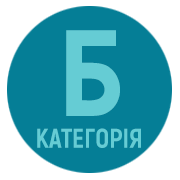EDUCATIONAL AND DEVELOPMENTAL ACTIVITY OF STUDENTS IN EDUCATIONAL INSTITUTIONALS UNDER SOCIAL RESTRICTIONS
DOI:
https://doi.org/10.32782/psyspu/2025.1.22Keywords:
educational and developmental activity; self-isolation; social restrictions; social frustration; mental states of the individualAbstract
The differences in the manifestation and determination of the educational and developmental activity of students in normal life and in conditions of forced social isolation are analysed. It has been established that in conditions of self-isolation, the educational and developmental activity of students is higher than in normal life. In general, the manifestation of educational and developmental activity in applicants is determined by the psycho-emotional states of the individual.An empirical study of the characteristics of educational and developmental activity in conditions of forced self-isolation has revealed a tendency to increase its severity in most applicants and to identify its determinants. With a low degree of its manifestation, they were more sensitive to changes in learning conditions than their highly active peers; they were distinguished by pronounced reactions of frustration to the consequences of forced social restrictions and substitution of activity with other types of activity in the field of family relationships and health; their personal resources in general and their involvement in the process of life are factors of increasing activity, while states of mental activation, tension and comfort reduce it. For applicants with high educational and developmental activity, its determinants in self-isolation conditions include personal resources, the main of which is confidence in controlling events, as well as their focus on realising professional aspirations and satisfying interests in the field of leisure and hobbies.In general, the severity of educational and developmental activity in applicants under conditions of social restrictions is due to two interrelated factors: personal activity, which is determined by the degree of frustration at the consequences of social restrictions, depends on the ability to be active in the spheres of life or compensate for it with other forms of activity and use personal resources; mental states – emotional tone, comfort, tension and interests, which together determine the degree of mental activation of the individual.
References
Освіта України в умовах воєнного стану. Інноваційна та проєктна діяльність : Науково-методичний збірник / за загальною ред. С.М. Шкарлета. Київ-Чернівці «Букрек». 2022. 140 с.
Chouhan J., Banford Z., Munro K. What is it that we want to educate young people about?. Journal of International Scientific Publications : Educational Alternatives. 2017. Vol. 15. P. 354–370. URL:https://www.scientific-publications.net/en/article/1001590
Lateef R., Alaggia R., Collin-Vézina D. A scoping review on psychosocial consequences of pandemics on parents and children : Planning for today and the future. Children and Youth Services Review, 2021. Vol. 125. N.11. DOI:10.1016/j. childyouth.2021.106002
Lovrić R., Farčić N., Mikšić Š., Včev A. Studying During the COVID-19 Pandemic : A Qualitative Inductive Content Analysis of Nursing Students’ Perceptions and Experiences. Education Sciences, 2020. Vol. 10. N. 7. DOI:10.3390/ educsci10070188
Oksana Kravchenko, Oleksandr Safin, Yevhen Potapchuk, Svitlana Bobrynova, Dariia Karpova. Psycho-emotional state of school children in conditions of quarantine limitations and distance learning. Training, Education, and Learning Sciences. 2022. Vol. 59. P. 260–267. https://doi.org/10.54941/ahfe1002409
Safin O., Kravchenko O., Mishchenko M., Potapchuk Y. Peculiarities of Psychologists’ and Social Pedagogues’ Work in Terms of Quarantine. Lecture Notes in Networks and Systems. 2021. Vol. 267. P. 149–157. URL: https://www.scopus.com/authid/detail.uri?authorId=57226642112







